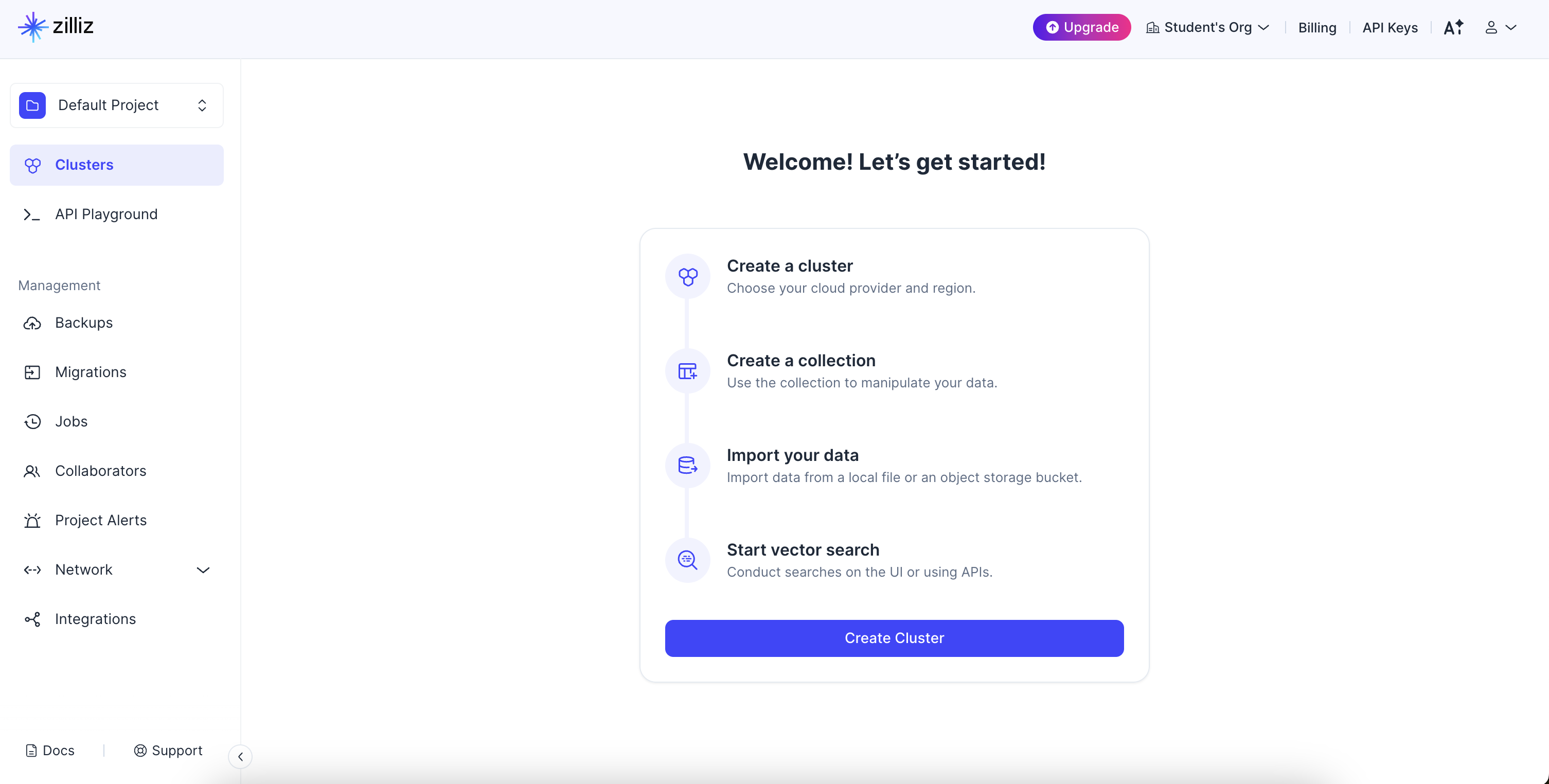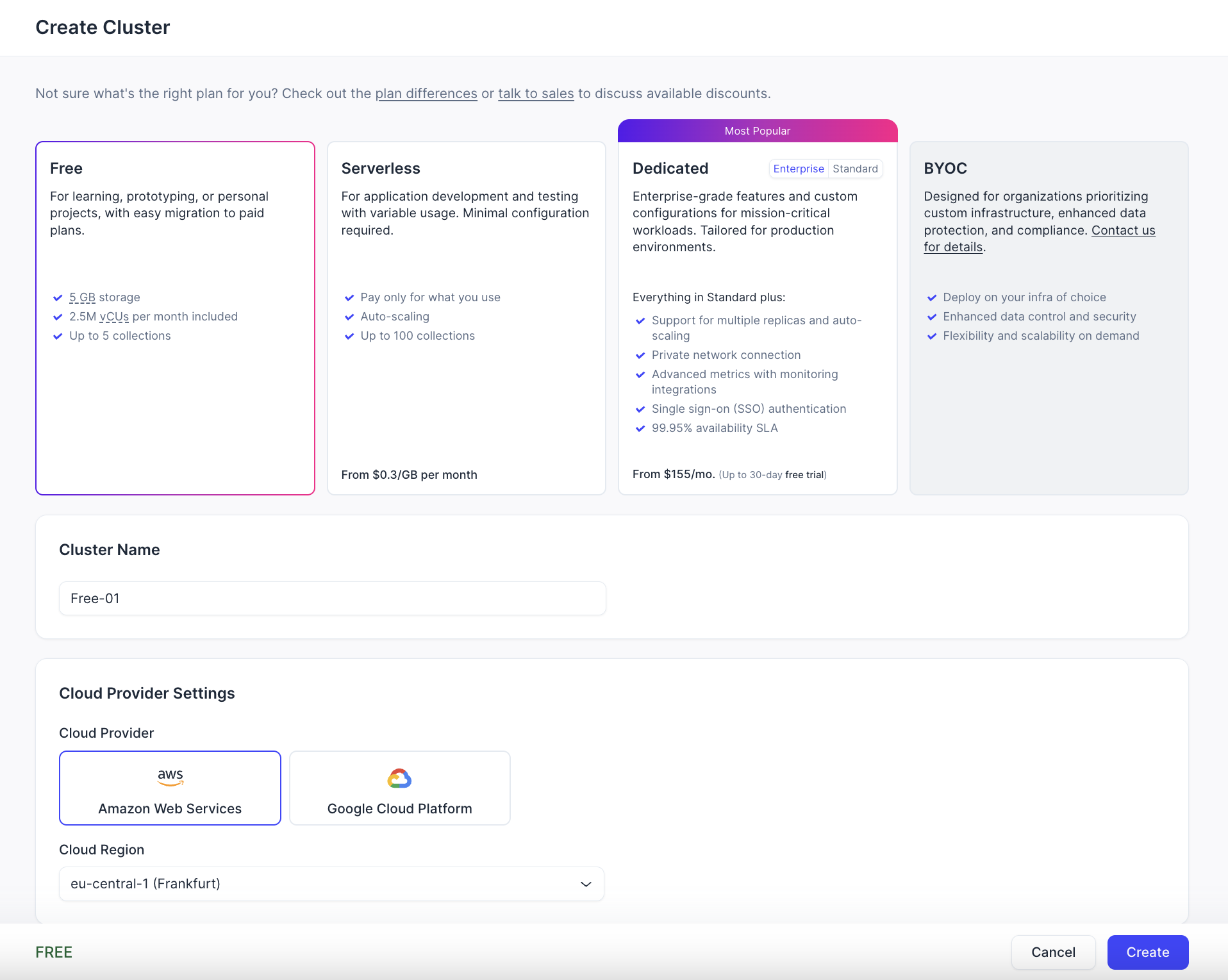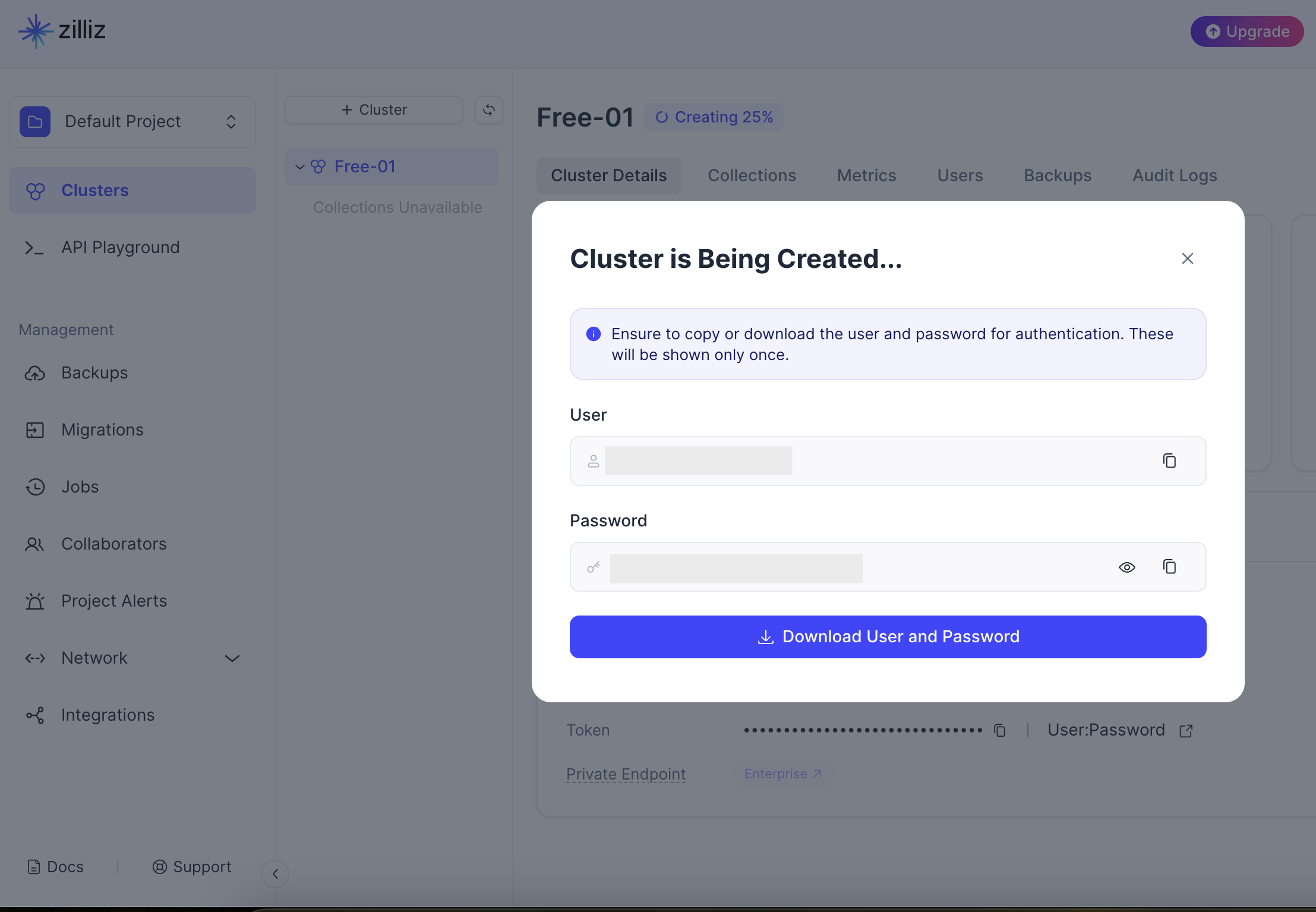Module ai.milvus

ballerinax/ai.milvus Ballerina library
Overview
The Ballerina Milvus vector store module provides a comprehensive API for integrating with Milvus vector database, enabling efficient storage, retrieval, and management of high-dimensional vectors. This module implements the Ballerina AI VectorStore interface and supports multiple vector search algorithms including dense, sparse, and hybrid vector search modes.
Setup guide
To utilize the Milvus connector, you must have access to a running Milvus instance. You can use one of the following methods for that.
Option 1: Using Docker
-
Make sure Docker is installed on your system.
-
Use the following command to start a Milvus standalone instance in docker
# Download the installation script $ curl -sfL https://raw.githubusercontent.com/milvus-io/milvus/master/scripts/standalone_embed.sh -o standalone_embed.sh #Start the Docker container $ bash standalone_embed.sh start
For detailed installation instructions, refer to the official Milvus documentation.
- Linux/macOS: Run Milvus in Docker
- Windows: Run Milvus in Docker on Windows
Option 2: Using Milvus Cloud by Zilliz
Zilliz Cloud provides a fully managed Milvus service. Follow these steps to set up your cloud instance:
-
Sign up to Zilliz Cloud: Visit Zilliz Cloud and create an account.

-
Set up your account: Complete the account setup process with your details.

-
Create a new cluster: From the welcome page, select "Create Cluster" to start setting up your Milvus instance.

-
Configure cluster details: Provide the necessary configuration details for your cluster, including cluster name, cloud provider, and region.

-
Download credentials: Once your cluster is created, download the authentication credentials and connection details.

-
Generate API Key: Navigate to the API Keys section in your cluster dashboard and generate an API key for authentication.
Quick Start
Step 1: Import the module
import ballerina/ai; import ballerinax/ai.milvus;
Step 2: Initialize the Milvus vector store
ai:VectorStore vectorStore = check new milvus:VectorStore( serviceUrl = "add-milvus-service-url", apiKey = "add-api-key", config = { collectionName: "add-collection-name" } );
Step 3: Invoke the operations
ai:Error? result = vectorStore.add( [ { id: "1", embedding: [1.0, 2.0, 3.0], chunk: { 'type: "text", content: "This is a chunk" } } ] ); ai:VectorMatch[]|ai:Error matches = vectorStore.query({ embedding: [1.1, 2.1, 3.1], filters: { // optional metadata filters } });
Examples
The Ballerina Milvus vector store module provides practical examples illustrating usage in various scenarios. Explore these examples.
- Movie recommendation system This example shows how to use Milvus vector store APIs to implement a movie recommendation system that stores movie embeddings and queries them to find similar movies based on vector similarity and metadata filtering.
Import
import ballerinax/ai.milvus;Other versions
1.0.0